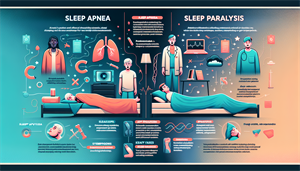
Struggling with snoring? Here are some actionable snoring hacks to help you reduce the nightly rumbles.
Snoring is often due to the relaxation of throat tissues and can be exacerbated by factors such as excess weight, sleeping position, dry air, and alcohol consumption before bed. Immediate and long-term strategies to reduce snoring include sleeping on one’s side, using humidifiers, performing mouth exercises, weight reduction, practicing good sleep hygiene, and avoiding alcohol close to bedtime.
Advanced anti-snoring devices like nasal strips, anti-snore pillows, and custom mouthguards provide additional solutions; yet, persistent snoring could indicate sleep apnea, which requires medical attention.
Understanding Snoring
Snoring occurs when air flows past relaxed tissues in the throat, causing them to vibrate and produce that characteristic rumbling sound. While it may seem harmless, snoring is often a symptom of underlying health issues.
It’s prevalent among men, with 38% of men snoring compared to 32% of women, and the likelihood increases with age. One of the prime risk factors for snoring is excess weight.
Carrying excess weight, especially around the neck, can compress the upper airway, leading to snoring. This is why weight reduction is often recommended as a method to reduce snoring and improve overall health.
Immediate Solutions for Quieter Nights
For those seeking immediate relief from the snoring symphony, we’ve compiled a toolbox of easy-to-implement solutions to stop snoring. These hacks range from adjusting your sleep position to enhancing the air quality in your bedroom and practicing snoring exercises. Together, they can significantly reduce snoring intensity and improve your sleep. We will now delve deeper into these solutions. Are you prepared to quieten your nightly noise?
Sleeping on Your Side: A Simple Shift
The position in which you sleep can significantly impact your snoring. Sleeping on your back can exacerbate snoring as gravity affects the position of the tongue and soft tissues, potentially leading to airway blockage. On the other hand, sleeping on your side can keep the airway open, reducing the risk of snoring.
However, maintaining a side sleeping position throughout the night can be challenging, especially when transitioning from bed sleeping sitting to a full side position or even attempting sleeping sitting.
Using pillows for support, aligning your chin and neck with your body, and bending your knees upward can help maintain this position and minimize back strain. Abstaining from alcohol before bedtime is another suggestion, since it can cause your throat muscles to relax excessively, leading to increased snoring.
The Power of Humidity: Improving Air Quality
Have you ever noticed how your snoring gets worse during the dry winter months or when you have a cold? That’s because dry air and sinus issues can exacerbate snoring. The solution? Humidifiers. These devices: Add moisture to the air Calm your air passages Decrease inflammation Encourage the loosening and draining of mucus Using a humidifier can help alleviate snoring caused by dry air and sinus issues.
When choosing a humidifier, consider that warm mist options are typically quieter than cool mist ones. This makes them a preferable choice for those seeking to minimize snoring and promote a peaceful atmosphere while in bed sipping warm honey. Refraining from consuming alcohol before bedtime is also crucial for better sleep quality, as is taking a hot shower to relax your muscles.
Mouth Exercises: Strengthening Throat Muscles
Ever thought of hitting the gym for your mouth? Mouth exercises, known as oropharyngeal exercises, can help strengthen the muscles in your throat and mouth, reducing the severity of snoring. These exercises involve the tongue, soft palate, and throat muscles, and can be performed daily to improve snoring.
Some common mouth exercises include pushing the tip of your tongue against the roof of your mouth and sliding it backward, sucking your tongue upward against the roof of your mouth, and pressing the entire tongue against the roof of your mouth. These exercises can be a simple yet effective way to reduce snoring and improve sleep quality.


